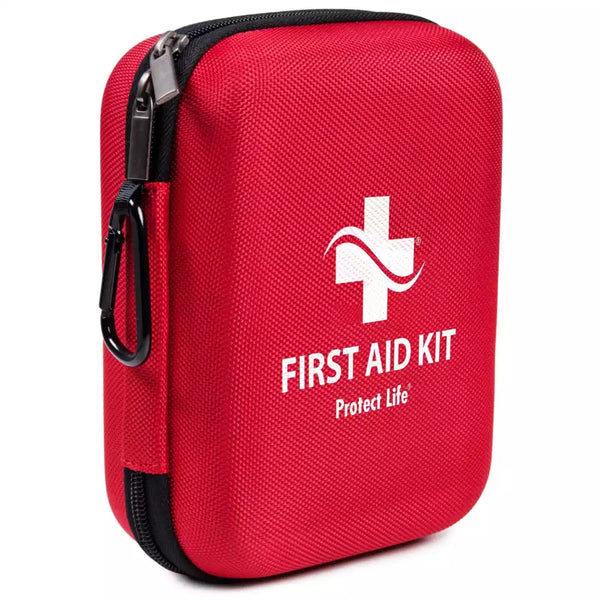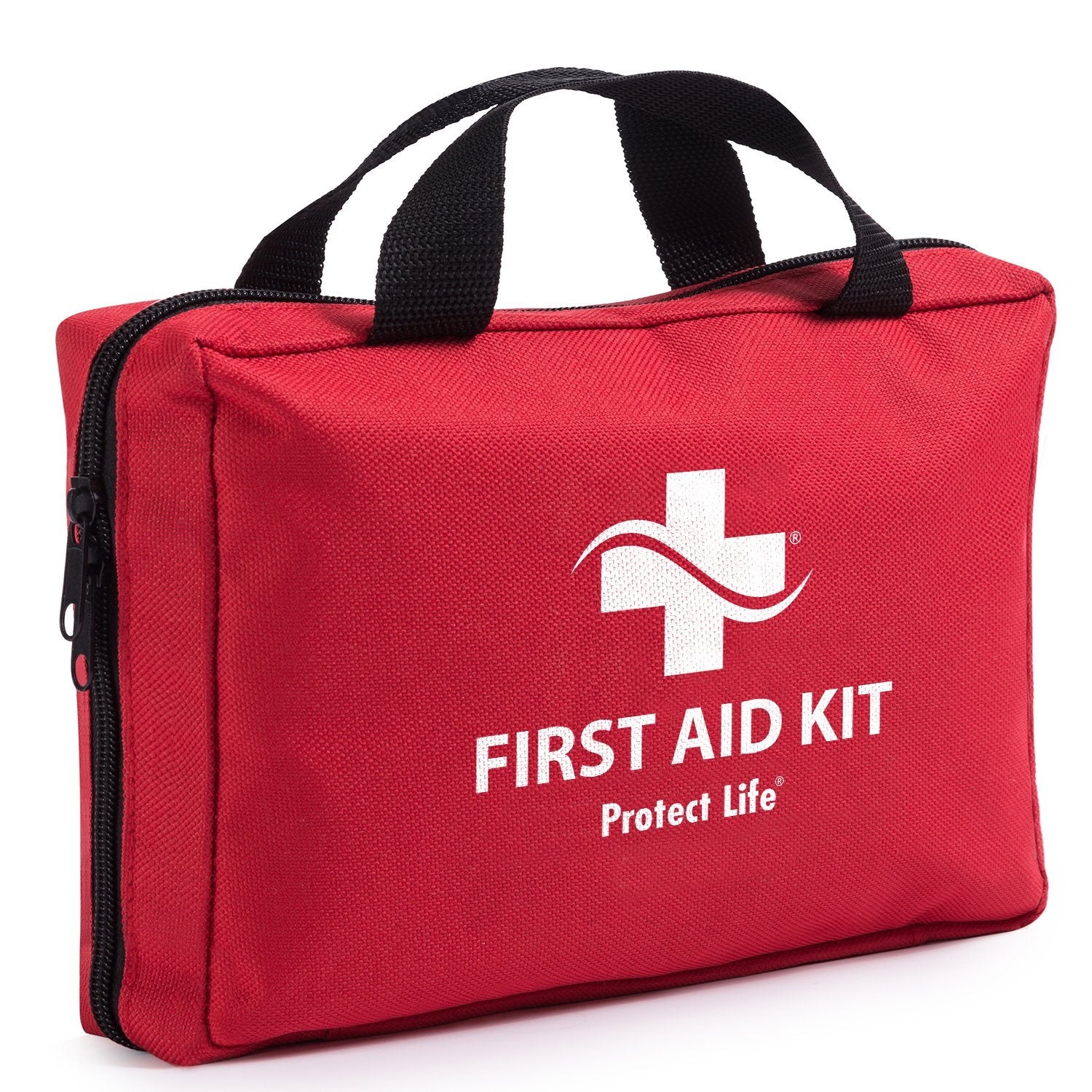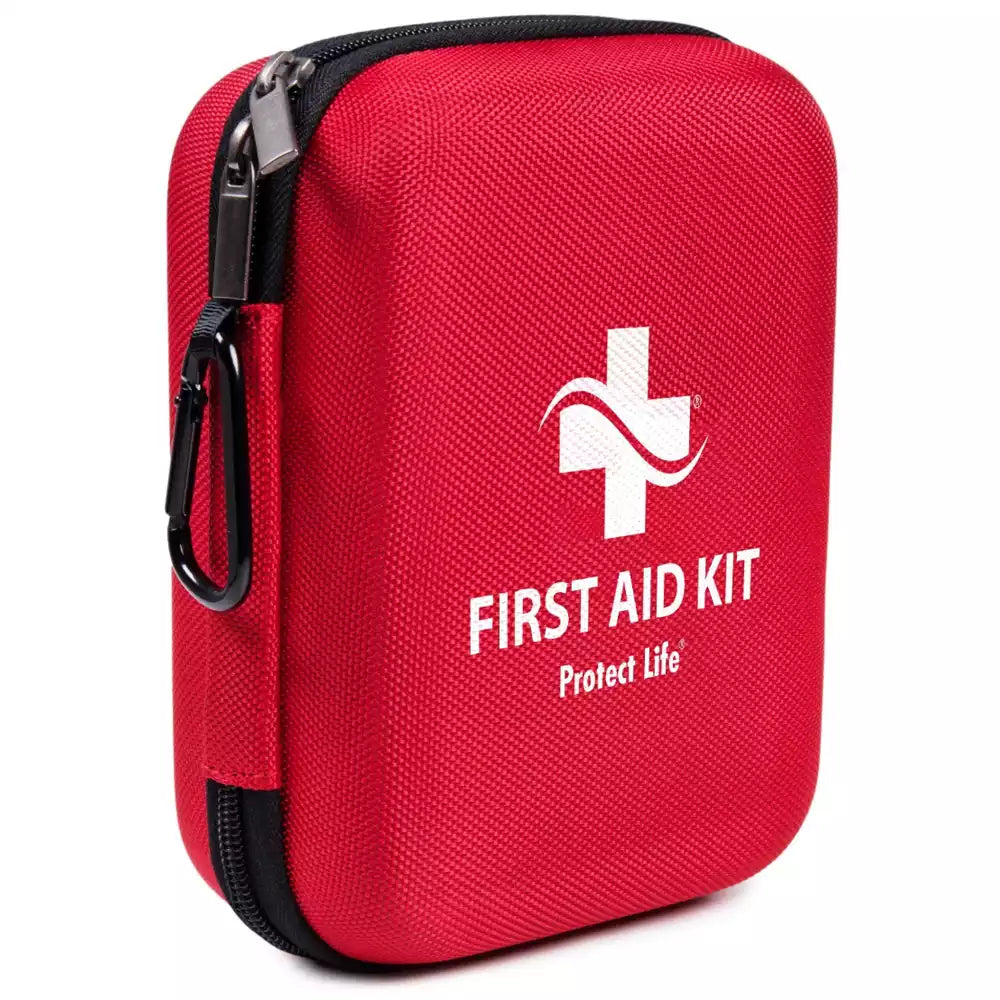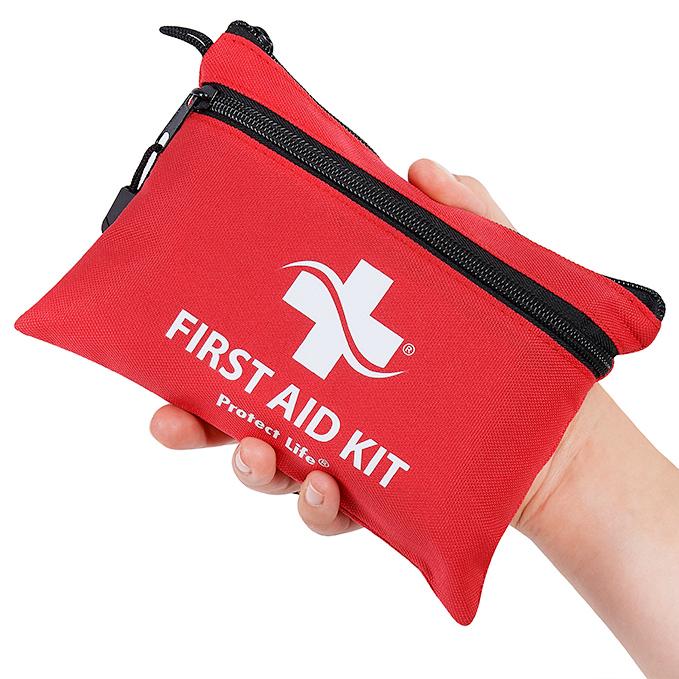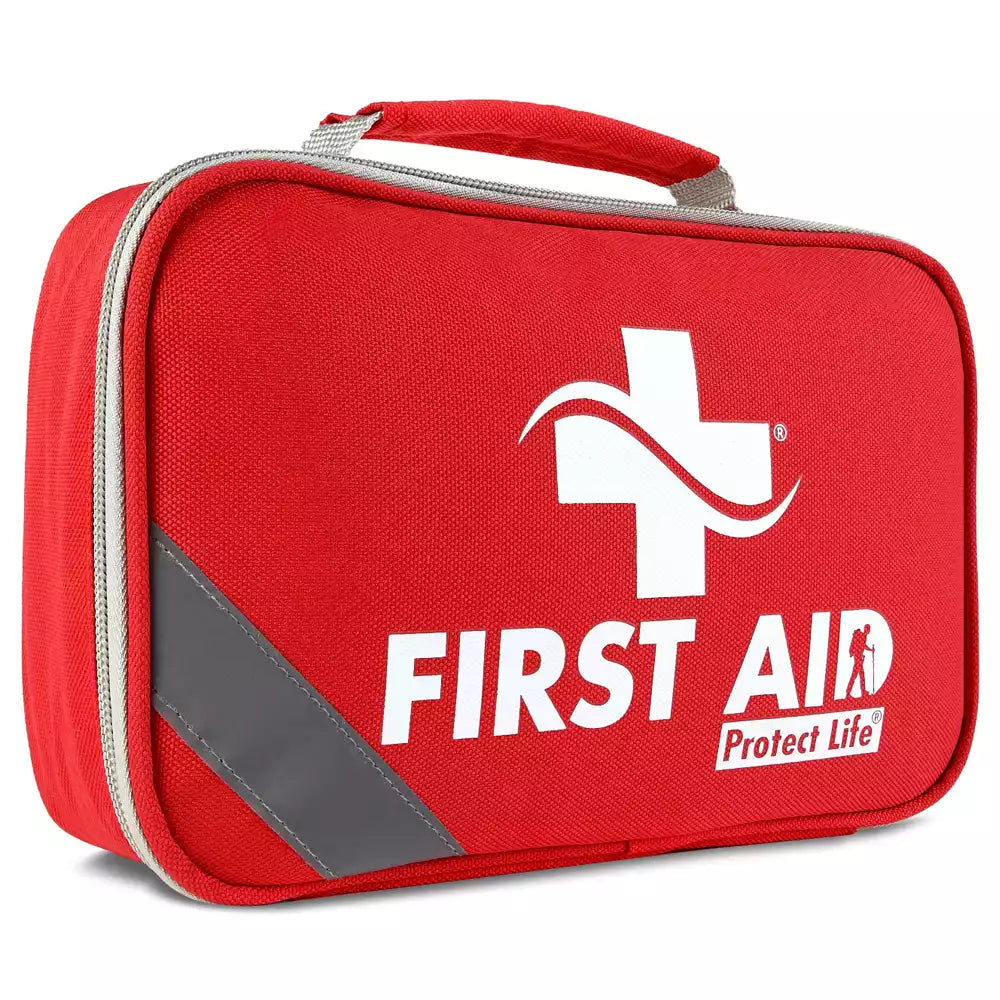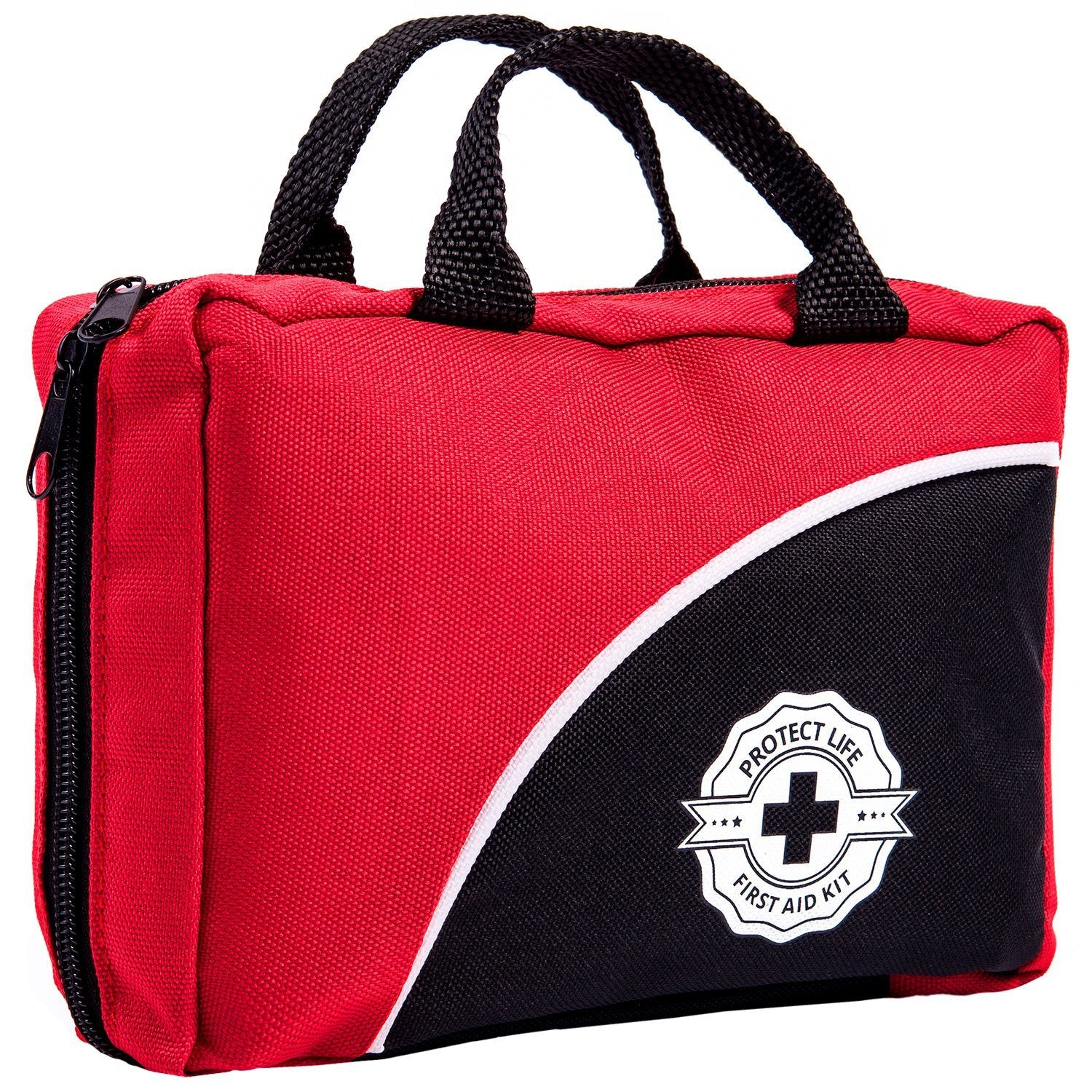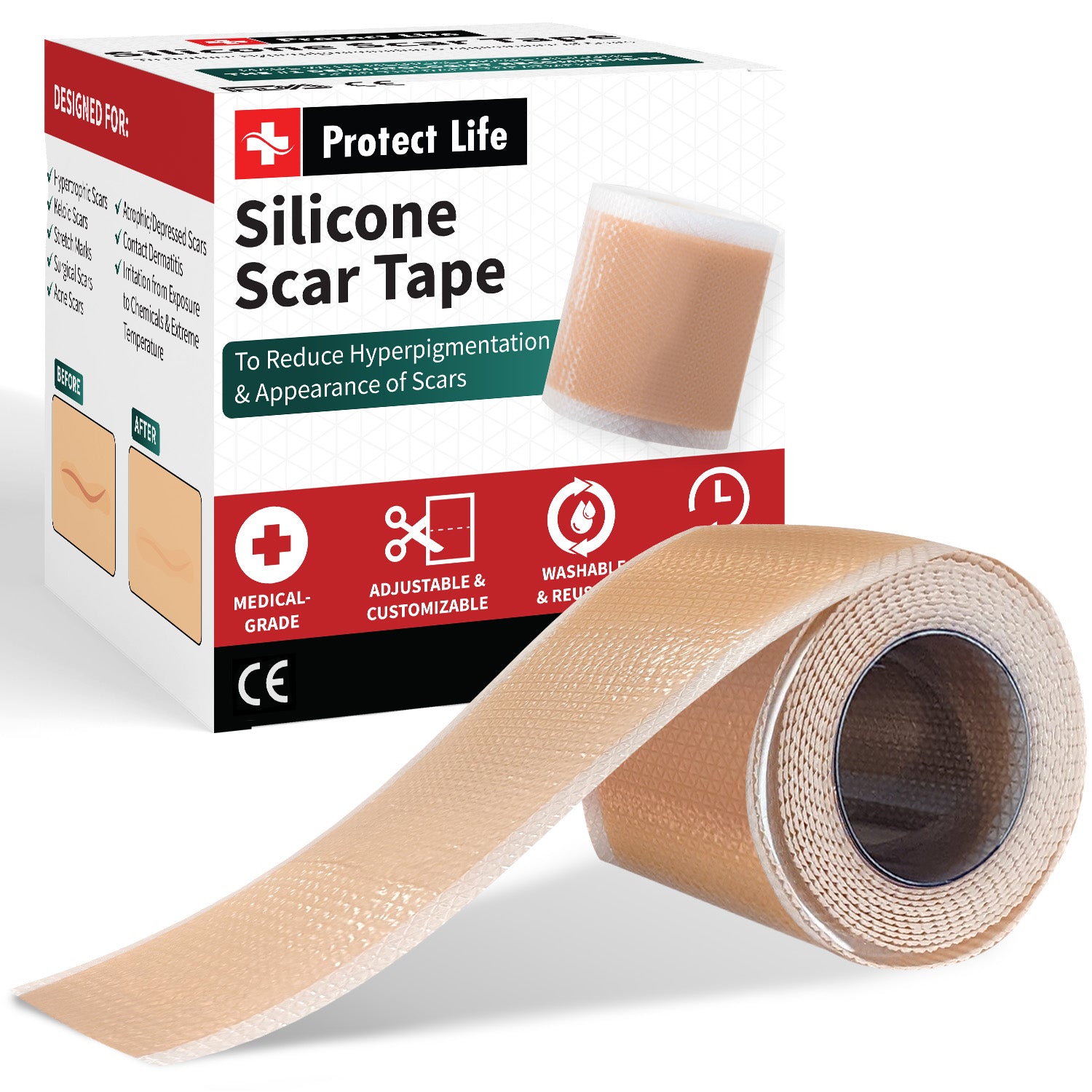Going on a camping trip is a great way to enjoy nature. Being properly prepared allows you to relax and have a better experience. Consider the following tips from Protect Life survival experts to help guide you:
Campsite
Whether you will be staying in a pup tent or a large RV, there are things to keep in mind when setting up camp.
o Decide when and where you want to go. Reserve your campsite if necessary.
o If you have new equipment, practice setting it up before you go. Keep the instructions with the equipment just in case you forget any of the steps.
o Bring reflective tape to mark your tent rope lines. This will help you avoid tripping over them in the dark.
o Bring a heavy sheet of plastic to put underneath your tent to keep moisture out.
o Check the weather before departing and have rain or bad weather plan.
o Try to reach your campsite early in the day. It is best to get organized and set up your equipment before sunset.
o Scout your campsite before setting up camp. Look for possible dangers like holes or overhanging branches. Do not set up camp too close to rivers or beaches. Water can rise, even if rain is not occurring locally.
o Leave your campsite in the same or better condition than you found it in. Bring plenty of litter bags, clean up after yourself and take your trash with you.

Gear
Make a list of all the items you will need and use it when you pack. Here are some basics:
o Cooking stove or flint to start fires. You can use an alcohol prep pad from your first aid kit
o Sleeping bags. Be sure they are warm enough for the climate you will be in.
o Clothing. Be sure to pack warm clothing and rain ponchos or other rain gear. If you are not prepared, always use the disposable raincoat from your Protect Life camping first aid kit (LINK200)
o The small toolset. A camping multi-tool is a good investment if you do not yet have one.
o Flashlights.
o Food. Even if you know you will be near a well-stocked river or lake, you cannot expect that the fish will always be biting. Be sure to bring along an adequate amount of provisions. Bring high-protein snacks if you plan to do a lot of hiking. Consider freeze-dried foods as they are lighter to carry and sealed to protect them from wildlife.
o Deck of cards or a book just in case you do get rained in.

Safety
Everything from a bee sting to a broken limb can happen when you are camping. Help may be miles or even days away depending on where you venture. Be able to be self-reliant. Here are some tips to consider before you go camping.
o Study the area where you will stay. Be aware of toxic plants and dangerous animals in the area. Pack a well-stocked first aid kit that includes antiseptics for cuts and scrapes, bandages for different size wounds, tweezers. Bring also an insect repellent, a snake bite kit, pain relievers, and sunscreen. You might also consider packing other medications to help relieve allergies or stomach discomfort. Taking a refresher course in CPR and/or first aid is a good idea as well and don't forget to read the Protect Life first aid brochure. Our first aid training brochure can help you meet the health and safety requirements for any environment.
o Be sure to bring maps that cover all areas where you will travel as well as a compass. If you take your Protect Life camping first aid kit you don't need to bring one. Let others in the camp know where you are going if you leave the campsite.
o Check with park rangers or other camp officers to be sure you get updates on any terrain change. Some areas may be flooded out; trails may be blocked or have suffered natural damage. If you do get lost, do not panic and do not move. It is always key to stay in one place instead of wandering about.
o While cell phones are great for emergencies, you may not be near a tower for proper connection. Consider a satellite phone if you will be far from civilization.
o Use the buddy system. Do not go hiking or into the water without someone else with you.
o Always be aware of your surroundings and remain alert, especially when hiking. Avoid consuming alcohol, as it impairs perception and judgment and can put you in danger in the wilderness.
o Do not store food in your tent. Seal your food, put it in a bag and suspend it from trees to prevent animals from eating it. When you are in bear territory, it is advisable to get a bear-proof food container and store it in a bear bag or designated location.
o Build fires in safe areas. Be sure fires and stoves are far enough away from the tent to prevent fires. Make sure fires are always attended. When extinguishing the fire, pour water over it and make sure all the embers, coals and sticks are wet so it will not accidentally reignite.
o Avoid wearing perfumes or colognes as scents can attract insects.
o Beware when encountering wildlife. All animals are unpredictable and potentially dangerous. Never approach any animal in the wild. If you do encounter a bear in the wild, do not ever run from it as they will typically chase and you can not outrun a bear.
o Try to keep clean while camping. Be sure to always wash your hands before cooking to help prevent your whole camp from becoming sick.
o Try to camp near a water source. It is good practice to boil, filter or chemically treat water before drinking to avoid getting ill.

o The weather can always be quick to change, especially in higher elevations, even if warm and pleasant weather is predicted. Prepare for wet, windy and cold conditions. Do your best to always stay dry to prevent hypothermia from occurring when temperatures drop.

